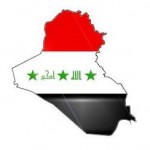Friday
Aug272010
Iraq: The US Strategy for a Government (Visser)
 Friday, August 27, 2010 at 10:36
Friday, August 27, 2010 at 10:36  Reidar Visser writes for historiae.org: "One cannot fail to get the impression that either US policy is grossly contradictive, or there is an unspoken underlying policy of détente with Iran in Iraq, at the expense of the governance of that country and its citizens."...
Reidar Visser writes for historiae.org: "One cannot fail to get the impression that either US policy is grossly contradictive, or there is an unspoken underlying policy of détente with Iran in Iraq, at the expense of the governance of that country and its citizens."...As the end of the US combat mission in Iraq is drawing to a close (31 August), there are two basic approaches to the ongoing, stalemated process of government formation in Iraq.
The first approach assumes that Iraq’s citizens are more interested in issues like security, health and services than in sectarian bickering and that it is possible to form a government based on common views on basic political issues instead of taking into consideration calculations relate to ethno-sectarian identities. Typically, this kind of government would be a “minimum-winning” one, i.e. just above the 163 mark needed to secure a parliamentary majority (and hence strong enough to pass whatever legislation it wishes to pass) but not much above that (in order to maximise the prospect for developing internal coherence and avoiding the multiplication of sinecures inside government).
Iraq Follow-Up: 64 Dead in Bombings — What is the Significance? (Cole)
This kind of government would offer the best chances of maximising the autonomy of the Iraqi government versus a hostile regional environment. It is also the approach that presents the best fit with the Iraqi constitution; by way of contrast the idea that all winning lists need to be represented or that all ethno-sectarian groups must be included in government has no constitutional basis as such.
The second, opposite approach, is focused on armistice rather than governance. It presupposes that no proper, issue-based government in Iraq is possible due to assumed insurmountable ethnic and religious tensions, and that the aim should therefore be to make sure as many players as possible are “inside the tent” where they would be less likely to create trouble. These ideas do not come from the constitution; rather they are inspired by Western models of “consociational” democracy and power-sharing and point in the direction of an oversized cabinet with a weak prime minister. It is therefore important to point out that the case of Iraq fits badly with the standard criteria cited by theoreticians of consociational democracy as prerequisites for success – including a relatively low case-load on the political system, a public willingness to accept backroom politics (or the existence of alternative means of expressing the popular will when government becomes invisible, such as frequent referendums), and not least internal coherence in the sub-communities included in government through a formula of power-sharing. Typically in the Iraqi case it would be vitally important that the Sadrists be represented if this kind of “armistice” approach is followed, since the whole idea is to make a compact between what is believed to be the “main tribes” of the community instead of transcending tribal and ethnic loyalties altogether (as in the governance-focused approach). Needless to say, this kind of government is unlikely to develop any internal coherence and will often experience paralysis. It will, in other words, easily fall prey to the schemes of regional powers.
After some initial confusion as far as Washinghton’s preferences are concerned (first it seemed there was a desire to see all four big winners included in an “armistice government”, then some suggested there was interest in a “governance government” of just Iraqiyya and State of Law) it is now possible to situate US policy within this dichotomy. Firstly, it seems clear that the idea of building an issue-based, progressive government is not seen as realistic by Washington: Ambassador Chris Hill recently repeated the view that the Kurds “had to be included”, simply on an ethno-sectarian basis. Thus the US proposal for Iraqiyya and State of Law to move closer together does not really seem to be based on a vision of them excluding the others; rather the idea seems to be that the two would take the most important positions and give the rest to the others in what would still be an oversized power-sharing formula.
Secondly, Washington has now introduced a specific suggestion for how to solve the tug-of-war between the leaders of the two biggest blocs, Nuri al-Maliki and Ayyad Allawi, regarding the premiership. The proposed solution would involve giving one of the two men (i.e. the loser in the premiership contest) compensation in the shape of the presidency for the national security council. Conceptually, then, this kind of proposal – described by American officials as a “way of increasing the number of chairs” – seems to be leaning towards the “power-sharing” end of the government-formation typology, since governance in Iraq today would mean reducing the number of chairs, not increasing them. This is especially so because the security council chosen as the key device for solving the problem (let’s face it, the idea is to create two premierships and kick the problems further down the road), is conceptually related to other institutional innovations supported in particular by the Kurds in the post-2005 period with the aim of further reducing the prospect of a strong government in Baghdad. There are striking similarities between the composition of the national security council of 2006 and the oil and gas commission proposed in 2007 (unsurprisingly, the president of the Kurdish region is supposed to sit on both), and the aim of having consensus decisions in these forums means that they are likely to remain ineffective and weak.
Whatever one may think of this US strategy, the challenges and the uphill struggle it faces seem rather obvious. Firstly, at the procedural level, and judging from leaks from the talks held so far, it seems designed to fit a scenario in which Maliki would continue as premier and Allawi would get the newly revived post as head of the national security council. There are several problems here. In the first place, Allawi does not seem particularly interested, since he is still hoping for the premiership instead. Secondly, if Maliki is to continue as premier he also needs to be the candidate of the biggest bloc in parliament, meaning that unless he allies with Allawi in a bloc (in which case no further partners would be needed and a more governance-focused cabinet could be formed instead of a power-sharing one), a Maliki premiership, as per the apparent US preference, is predicated on the survival of the Shiite alliance of both State of Law and the Iraqi National Alliance, i.e. Iran’s preferred scenario (otherwise Maliki would not have the seats to form the biggest bloc). Again, absent a bilateral deal with Iraqiyya, the sole legal path to a second Maliki premiership is a perpetuation of a Shiite alliance on the pattern of the United Iraqi Alliance in 2006, and even that would be disputed by Iraqiyya for being a much too flexible reading of the constitutional article 76 on the entitlement of the biggest bloc to form the government since it involves post-election bloc formation.
In other words, this outcome would be the exact opposite to what Joe Biden and other US leaders have been telling Washington lately about a supposed decline in Iranian influence in Iraq. Not a big surprise, though: Ambassador Chris Hill told a USIP audience in Washington last week that he expected the next Iraqi premier to be a Shiite – an assertion that completely lacks any basis in the Iraqi constitution and represents exactly the kind of sectarian paradigm of Iraqi politics that Iran prefers. One cannot fail to get the impression that either US policy is grossly contradictive, or there is an unspoken underlying policy of détente with Iran in Iraq, at the expense of the governance of that country and its citizens. Had Washington truly put Iraqi interests first, it would instead have aimed to draw a wedge between the two Shiite-led alliances by having one inside government and the other on the outside, thereby allowing the one in government to develop a more lasting bond with the other main forces in Iraqi politics, without being susceptible to cheap tricks like the de-Baathification revival that brought Iraqi politics to a standstill earlier this year.
Read full article....




